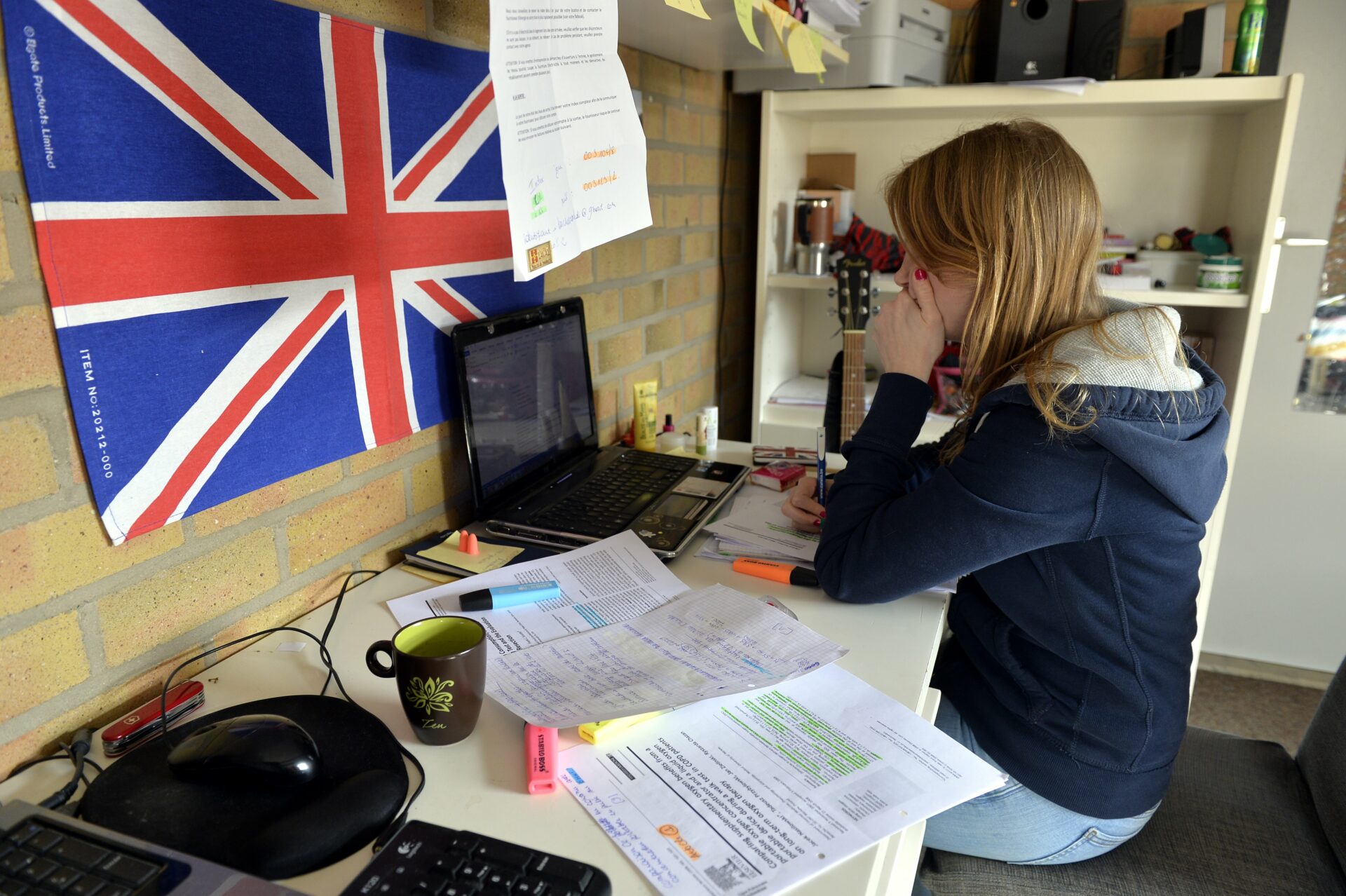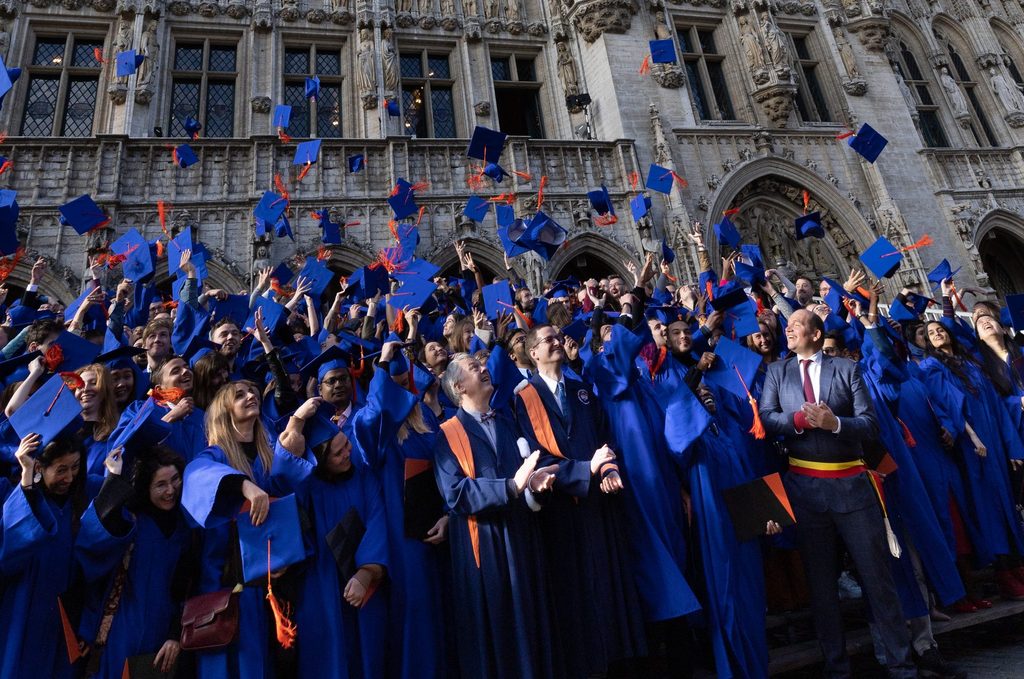The rise in popularity of English-language education continues its course in Flanders, but the region is reluctant to further adjust its policies to this demand.
The offer of full or partial English-language programmes and courses in Dutch-speaking universities and colleges is nothing new. However, in recent years, these have rapidly grown in popularity, especially in colleges, where applications for English-language Bachelor's degrees increased by 200% this year.
The rising demand is partly due to more foreign students finding their way to Belgium. However, more and more Flemish students are also now opting for English-language programmes, mainly because they want to prepare themselves for an international and diverse workplace.
"English classes are a big plus for Belgians. Many companies around Brussels with Flemish and French employees are choosing English as their business language," Annik Schellens, Manager of International Programmes at Thomas More told The Brussels Times.
"We want to prepare students for this, by putting them on the right track to make a natural transition. All-English programmes are also more in demand, as these are international classrooms with people from all over the world. Here, they learn how to work with people from another background, which is also beneficial for their careers."
Not budging
In Flanders, the education language in schools is Dutch. In higher education, however, the legislation allows universities and colleges to offer English-language courses, provided there is an equivalent alternative which is 100% taught in Dutch. For Dutch-language programmes, the legislation allows for a percentage share of the number of classes to be taught in another language.
To meet the rising demand for English-language courses and ensure the brightest students don't move abroad for their studies, education institutions are asking the government for a less strict language regime.
However, Flemish Education Minister Ben Weyts, an avid supporter of preserving Dutch-language education, is adamant that the anglicisation of education needs to be controlled. "A less strict language regime is not in the cards," his spokesperson Michaël Devoldere told The Brussels Times.

Credit: Belga / Eric Lalmand
"We are seeking a balance between internationalisation on the one hand and democratisation and educational quality on the other, and we have now found that balance."
Weyts understands that universities are responding to requests from sectors, and that they want to attract more foreign students and therefore have to profile themselves in an international context. "We do leave room for that, but we still hold on to those restrictions because obviously, the language of instruction remains Dutch," Devoldere said.
He added that Dutch is the most accessible language for Flemish students and also ensures that they receive high-quality teaching, as most lecturers can speak English very well but "their Dutch will still be better than their English."
Need to follow trend
In response to the universities' call to offer English courses to better prepare students, Devoldere responded that people should not convince themselves of problems that are not there. "Flemish youngsters have good knowledge of English because the English-speaking culture has a strong influence in Flanders: we don't dub television programmes and a lot of the music they listen to is in English."
He added that teaching English jargon in Dutch-speaking education can be necessary, "which is why we allow certain classes to be taught in another language."
Related News
- Flemish schools ban isolation and restraint except in cases of serious danger
- Sex education policy in Belgium is failing its youth, experts claim
However, Schellens argued that Flanders risks losing out by not adapting to this trend. "If we don't open up the possibility for English-language education more widely, we will miss the boat," she said, explaining that in many other European countries, English-language programmes are being fully embraced.
"It will make our institutions more popular with students from abroad who want to experience our quality education. They can then also stay here because in many cases, they are taught Dutch as part of their degree, but they also know a lot about our culture and way of life," Schellens said.
"It also allows us to offer our Flemish students what we believe is needed for their career, so it really is a win-win situation," she concluded.

